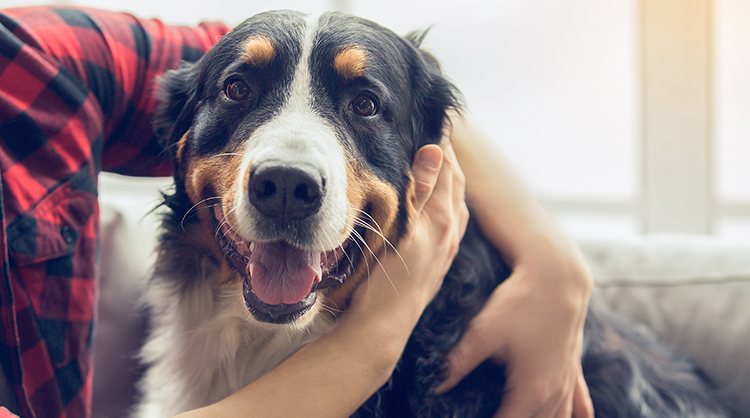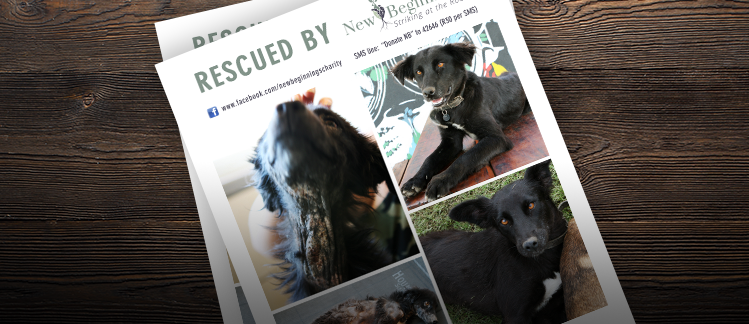Keeping Your Pet Warm And Healthy This Winter
HEALTH AND WELLNESS

Posted by bravectosouthafrica – 25 July 2018
Topics covered in this article:
Your dog and mental health
World Hepatitis Day and winter common cold
Winter in sunny South Africa doesn’t always feel like much to worry about regarding temperature. We still enjoy relatively sunny days as well as the occasional downpour of rain and winter winds, allowing us to cuddle with our dogs with hot beverages in front of our fireplaces Even though winter is super fun for cuddles and extra nose licks, it can also come with its fair share of obstacles for both you and your dog.
Ticks, fleas and mites aren’t taking a winter break.
Luckily, neither are we!
Firstly, it’s important to note that just because us humans might go into hibernation mode (binge-watching series in bed with snacks!), ticks and fleas certainly don’t. Actually, your home is the perfect place for them during these colder months as the outside world becomes more uninviting.
Contrary to popular belief, fleas do survive the cold weather. But more than merely survive, they also love becoming your newest housemate. Your home is the perfect hideaway for fleas during winter times. Fleas flourish under warm and humid conditions, making your home a perfect breeding area. Although they are generally less active during winter, they are definitely still around. Let’s be honest; no one has the time or energy to combat a full-on flea infestation. So, instead of treating the aftermath, rather decrease the chances of ticks and fleas making themselves at home this winter by opting for a single Bravecto® chew!
Yes, there are a whole lot of itsy bitsy crawlers out there – ready to take a bite at you and your pup. But, what about all the other things that can very easily contribute to a winter that feels extra-long for both of you?
Keeping your dog’s mind healthy this winter:
Combat the winter blues!
These days it may feel like the majority of your time is spent dodging and navigating yourself through many of the curveballs life throws your way. The days are shorter and the nights are longer, and playtime isn’t as frequent as it used to be. What makes this so much better is that after a long hard day, there’s an excited, happy pooch waiting for you to help ease your troubles!
At this point of the year, many people start feeling burned out. Did you know that your dog picks up on that? The seasonal changes cause many humans to develop Seasonal Affective Disorder (SAD). Although some believe that our pets don’t necessarily suffer from the disorder themselves, it is likely that they are affected by it as dogs pick up, sense and mimic the emotion, feelings and behaviour of their owners. It’s also important to keep in mind that dogs might start suffering from cabin fever if kept indoors for too long. This is why it’s vital to make time for exercise and outdoor activities from time to time – even if it is just for a change of scenery.
With that being said, it’s equally important to keep an eye on yourself too. Ensure that you are getting plenty of vitamin D during these exceptionally long periods of being indoors. With dogs mimicking these emotions, they frequently display symptoms for SAD, such as lethargy, neediness and behavioural changes, such as aggression and frustration. Be sure to notify your veterinarian if these symptoms persist or intensify as it might be due to another underlying health problem.

Fun activities to combat cabin
fever for the entire family.
Keeping your dog’s body healthy this winter:
World Hepatitis Day is coming up, and while some don’t know that much about this condition, we’re here to clue you up on everything you need to know about Hepatitis.
What is Hepatitis?
Hepatitis is a condition that affects the liver of your pet. It comes in various types. The most common strain of Hepatitis found in humans is Hepatitis C. Dogs, however, are vulnerable to a specific strain of hepatitis known as ICH (Infectious Canine Hepatitis) also sometimes known as Canine Adenovirus Type-1 (CAV-1). Some strains of Hepatitis are zoonotic, which means they are contagious across species. The type of hepatitis that infects dogs is not infectious to humans – although it’s extremely contagious between dogs and other animals. Hepatitis affects the liver, which can lead to a yellow discolouration of the mucous membranes and other parts of the body, like the eyes, gums and skin. Hepatitis can also cause high fever, a painful abdomen, general sickness, and loss of appetite. In most severe cases, canine hepatitis can lead to internal bleeding.
So, how exactly does your dog get hepatitis?
The most common way Hepatitis is contracted is via contact with other infected dogs. The disease is present in all bodily fluids and discharges of infected and carrier animals. Dogs pick up the virus through their mouths and noses. The virus then replicates in their tonsils during the incubation period, and after a few days, the infection itself will occur in the liver and potentially the kidneys.
Risks increase when sharing communal food and water bowls or drinking from bowls that are used publicly. Puppies can contract Hhepatitis from their mom if she has been infected, either through their milk or while the pup is in the uterus.
How can you prevent Hepatitis in dogs?
A vaccination is available for dogs to protect them against hepatitis (Canine Adenovirus: Type One). Vaccination is the best way to prevent diseases like Hepatitis. The adenovirus type 1 vaccination is included as a component in the general 5-in-1 vaccination that is given when your dog is a puppy and should be a part of the standard shots given as an annual booster by your vet. In a small number of cases, vaccinated dogs may still develop the condition, but it will be much less severe and will generally not make your dog seriously ill.
Tips you can try to prevent Hepatitis in your dog:
Try carrying your own water bowl for your dog when you’re out and discourage them from drinking from communal water sources.
Try to avoid visiting places where people aren’t responsible for picking up their dog’s messes as it can be picked up through faeces as well.
If your dog has a weakened immune system, or another existing health condition, be sure to limit their contact with unknown dogs.
If for any reason, your dog cannot be vaccinated, the same guidelines will apply in order to decrease the risk of infectious diseases affecting them.
What are the symptoms you should look out for should your dog be infected?
- Sluggishness
- Lack of appetite
- Weight loss
- Vomiting
- Excessive urination/excessive thirst
- Fluid build-up in the abdomen
- Yellowish discolouration of the gums and moist tissue of the membranes.
- Diarrhoea
Becoming familiar with the early symptoms of Hepatitis in dogs is important, as many dogs with Hepatitis don’t necessarily feel sick or show symptoms right away. They tend only to show outward signs once a substantial portion of their liver is affected by the disease.
Once the majority of the liver is affected, only then will your dog start to show systemic symptoms. Which means the symptoms will appear in a more generalised area of your dog’s body (like general poor feeling, rather than symptoms isolated to the organ).
If you’ve noticed any of these symptoms, you should visit your nearest veterinarian as soon as possible.
What is Acute Hepatitis?
Acute Hepatitis is often also referred to as “idiopathic.” This means that the cause of Hepatitis is not known in most of these cases. With Acute Hepatitis, the functional reserve of the liver is almost always preserved, and usually, recovery takes place spontaneously in about three weeks without treatment. Although, sometimes additional treatment is required if your dog has cases of severe vomiting or dehydration. The most serious concern about Acute Hepatitis in dogs is the fact that it can progress into chronic Hepatitis which, if not treated at an early stage, can progress into liver fibrosis and cirrhosis.
Therefore, whenever Acute Hepatitis is diagnosed in dogs, it is important that the veterinarian takes a liver biopsy four to five weeks after the diagnosis, to discover whether the acute form is turning into the chronic form and start treating chronic hepatitis in an early phase. Chronic Hepatitis in dogs, also sometimes called Inflammatory Canine Hepatic Disease, refers to a syndrome in which death of hepatic (liver) cells has occurred and is associated with a chronic inflammatory process which typically progresses to liver fibrosis (replacement of hepatic tissue with fibrous tissue) and cirrhosis (progressive derangement of the liver architecture and
function).
What are the causes of Chronic Hepatitis?
Chronic Hepatitis in dogs has various causes, including drugs (acetaminophen), mushroom toxins (phalloidin), metals (copper) and infectious agents (leptospirosis). However, in most cases, it is not possible to indicate a specific cause.
Which breeds are at increased risk?
This disease is most commonly seen in middle-aged and older dogs, over three years of age. Female dogs are overrepresented in the affected group; the reason for this association is still a mystery. Certain breeds have a predisposition to developing Chronic Hepatitis. These include the Labrador Retriever, Standard Poodle, Scottish Terrier, Cocker Spaniel, West Highland White Terrier, Bedlington Terrier, Keeshond, Skye Terrier and Doberman Pinscher. In the case of Chronic Hepatitis, dietary management is important. – low sodium diet could help to control fluid build-up in the belly. Well-balanced commercial diets usually aim to provide a supportive liver function that meets the proper requirements of energy content, reduction of aromatic amino acids, the presence of soluble fibre and low content of copper and sodium.
The overall treatment for Hepatitis depends on what the cause of liver inflammation is and is largely specific to every dog’s individual case. Treatment depends on the cause of liver inflammation and must be individualised and made accordingly to each patient’s needs. It’s important to intervene as early as possible, in order to prevent total liver dysfunction and its life- threatening consequences.

Winter diet tips for
a healthy dog
Keeping your dog safe from the common canine winter colds:
Does your dog have a common cold? Yes, just like us, our pets can catch the common winter flu bug. Luckily, it isn’t contagious between humans and dogs, so, we can’t catch it from them, and they won’t get it from us. Runny noses, grumpy attitudes, watery eyes and the occasional sneeze, just like us, they need lots of rest, blankets and to drink plenty of water. Often a canine cold will only leave them to feel a little under the weather for a few days and will have them wagging their tails again in no time, as they usually have a quick recovery time. If you think you have a dog that is very sick with serious symptoms like nosebleeds, vomiting uncontrollably or running a high fever, be sure to take your him/her to an emergency pet centre as soon as possible. If these serious symptoms are not treated, in more severe cases, your dog could catch a case of dog pneumonia.
Could my dog have pneumonia?
When your dog has spent time in rainy or cold weather, your pup will catch this viral infection. Most likely, all you’ll need is trip to the vet and some antibiotics to get him or her up and running again. This primarily affects young puppies and elderly dogs. Be sure to keep an eye out to see that it doesn’t develop into a more serious condition. Warmth is very much part of the protection they need to keep them happy and healthy, so during these cold winter months, try keeping their bodies warm by adding a dog jacket or two.
Treatments:
Treatments for common canine colds are usually very similar to what we’ll do ourselves. Plenty of rest, water and lots of blankets and cuddles. It may also be worth investing in a humidifier in the house, or where your dog spends most of his/her time, to loosen up some of the mucus in their lungs/sinuses. Because dogs’ immune systems typically get slightly weaker during winter months, adding lots and lots of vitamins are a great addition to their diets.
To stay one step ahead, take your dog in to see the vet for a full-checkup to ensure there are no serious conditions that you need to worry about.
Keeping your dog’s soul healthy this winter.
Meet Angie. Angie was found neglected and with severe mange and Tickbite fever. “After receiving sponsored Bravecto® and a month-long antibiotic course , Angie made a full recovery. Good going, Angie!

Sources:
https://www.foundanimals.org/just-best-friends-dogs-mental-health/
https://www.medicalnewstoday.com/articles/320950.php
https://www.petmd.com/dog/conditions/endocrine/c_dg_hepatitis_chronic_active
https://www.pets4homes.co.uk/pet-advice/how-to-protect-your-dog-against-canine-hepatitis.html
https://www.medicanimal.com/Can-your-pet-get-fleas-in-winter/a/ART110245
http://www.petstreetmall.com/articles/common-canine-colds-in-the-winter.aspx
https://wagwalking.com/wellness/can-dogs-get-sick-from-the-cold
http://www.dogingtonpost.com/do-dogs-get-seasonal-affective-disorder-in-winter/
https://www.petplace.com/article/dogs/pet-behavior-training/sad-how-the-winter-blues-affects-your-dog/
https://www.akc.org/expert-advice/health/common-conditions/can-dogs-get-colds/
https://www.caninejournal.com/can-dogs-get-colds/
https://www.petmd.com/dog/care/do-dogs-get-colds-everything-you-need-know
Subscribe to our Newsletter
Get to know your furry friend better! Sign up for all things dog- or cat-related.
The Hairy Facts about the dreaded hairball
12 April 2021
Help! My dog’s barking mad! Volume 2
12 April 2021
Your Itchy, Scratchy Cat – All About Cat Skin Problems
12 April 2021
The Dog’s Diet: A Bone of contention?
01 April 2021
Mango Fly Worms: How to Spot and Eliminate them
Posted on November 28,2019
Managing Mange And Mites In Your Dog
Posted on June 11,2018
Why Do Cats Purr and How? Learn What Your Cat Is Saying
Posted on October 14,2020
How to Get Rid of Ear Mites in Dogs
Posted on November 06,2019









